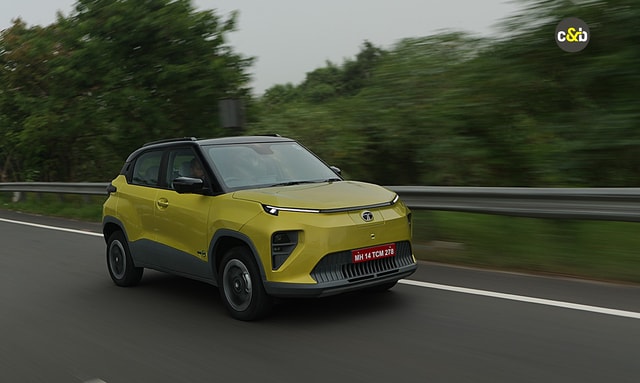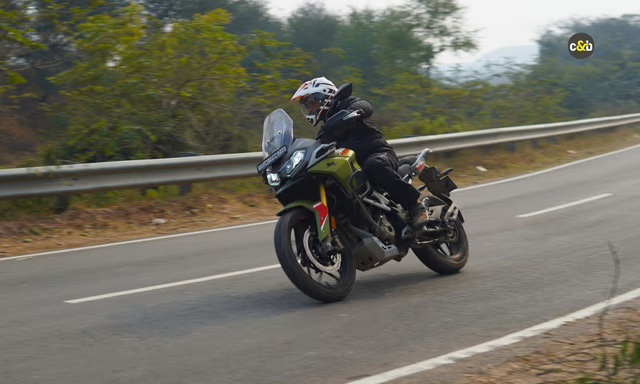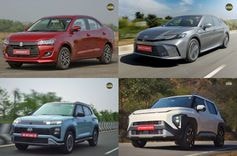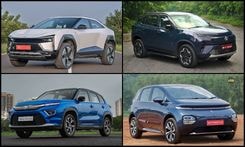Slowdown In Auto Sales Ahead Of BS6 May Hamper Sales Margins And GST Collection

- Carmakers have revised prices twice in the last financial year.
- The price hike has led to negative customer sentiments.
- Any further price hike will result into further drop in sales.
Auto sales have gone down the spiral in the past 12 months and the industry is now worried about the slowdown at a time when automakers are gearing up to face the BS6 transition. The passenger vehicle segment has again recorded a slump of 18.42 per cent in the Q1 (April-June) of FY2020 selling 712,620 units against 873,490 units which were sold a year ago. Auto experts say that if sales continue to drop further, the industry may face problem to sustain margins given the advent of emission and safety norms which require automakers to hike prices.
Also Read: Car Sales June 2019: Sales Of Passenger Vehicles Down By 17.54 Per Cent
Majority of the carmakers in India have revised their prices twice in the last financial year and coupled with other macro-economic factors like one time insurance premium payment, on-road prices of vehicles have increased significantly. The situation has taken a toll on consumer buying sentiments too.
"If the consumer sentiments continue to be low and further cost increase is happening with BS6, both in case of petrol and diesel, passing on that cost to customers will be a big challenge. So considering that the Industry is already under pressure, it would not be possible to pass on that cost to the customers. Costs are already high, partially because of the insurance premium and partially because of input costs and other changes which have happened over a year's time. So with that in mind, there is issue that unless the consumer sentiments pick up, it will not be possible for OEMs to pass on the price hike. Moreover, if the consumer sentiment doesn't pick up, it can have an adverse effect on the margins," said Subrata Ray, Sr. Vice President and Auto Expert at ICRA.
Also Read: Car Sales June 2019: Maruti Suzuki Registers 17.2 Per Cent Decline In Sales
This turns out to be an even bigger challenge at a time when the industry together (carmakers + component makers) has invested about Rs. 80,000 crore for the transition to BS6 and price hike is actually the need of the hour to sustain sales margins and at least recover the capital investment, if not make quick profits. Speaking on similar lines Ray said, "The industry has already invested a huge amount in BS6 and no further investment is required on the technology. However, if the sales drop further and it won't be possible to pass on the price hike to customers, recovery of that capital will be a huge issue."
 The government has reduced GST rates on EVs which account just 0.06 per cent of the market share, while SIAM's and other carmakers' demand to reduce GST on PVs were not attended.
The government has reduced GST rates on EVs which account just 0.06 per cent of the market share, while SIAM's and other carmakers' demand to reduce GST on PVs were not attended.Also Read: Union Budget 2019: Auto Industry Disappointed With Budget, But Welcomes EV Support
At a time when the industry is under turmoil and is demanding external support from the government to uplift sales, government has shifted its focus predominantly towards electric vehicles. This is even more surprising as EVs account just 0.06 per cent of the total market share and majority of it are electric two-wheelers. Though we understand government aspirations to ramp-up EV sales in a bid to achieve its ambitious targets, in the current scenario, auto industry's business depends purely on combustion engine powered vehicles. Hence, SIAM and carmakers are demanding rectification measures to be taken in a bid to improve sales. Ahead of the budget session, several carmakers and SIAM had asked the government to cut down GST rates on PVs and bring them under the 18 per cent tax bracket, at least for a period of six months which can give a much-needed and prompt fillip to the sales. The move would also give carmakers some cushion to absorb some of the cost burden of BS6 transition along with sustaining margins. Shifting the cost burden completely onto final customers would further demotivate them which in-turn will hamper sales further.
"No GST cut on Internal Combustion (IC) powered models is very shocking at a time when the industry needs to take measures in order to stay afloat. Ramp-up of EVs will have to follow a path and at present we need support to sell the vehicles which are currently in the showrooms. If the sales continue to drop further, let's say to over 25 per cent, and GST rates aren't reduced, even government's GST collection will fall," said Rajan Wadhera, President- SIAM and President- Automotive Sector at Mahindra. Speaking on similar lines, Ray added, "Even the Government doesn't benefit if the volumes drop further as the revenue collection will also suffer."
Also Read: Union Budget 2019: Govt Proposes ₹ 1.5 Lakh Income Tax Reduction On Loans On EVs
Experts foresee a problem of capital blockage if automakers fail to sustain the required sales margins, trying to avoid price hike. Increase in prices will make the situation even worse leading to further drop in sales, since customer sentiments are already low. At present, the only silver lining is the upcoming festive season and then the pre-buying which is likely to happen ahead of BS6 norms. If nothing else, it will at least help carmakers to clear BS4 inventories, however, that will also happen by the means of discounts.
Latest News
 car&bike Team | Mar 4, 20262026 World Car Awards: Top 3 Finalists Announced Across CategoriesFinalists for the 2026 World Car Awards have been announced across six categories, with winners to be revealed in April.1 min read
car&bike Team | Mar 4, 20262026 World Car Awards: Top 3 Finalists Announced Across CategoriesFinalists for the 2026 World Car Awards have been announced across six categories, with winners to be revealed in April.1 min read car&bike Team | Mar 3, 2026Ducati Desmo450 MX Teased Ahead of India LaunchThe Ducati Desmo450 MX is expected to be launched in India soon, as early as sometime later in March 2026.3 mins read
car&bike Team | Mar 3, 2026Ducati Desmo450 MX Teased Ahead of India LaunchThe Ducati Desmo450 MX is expected to be launched in India soon, as early as sometime later in March 2026.3 mins read car&bike Team | Mar 3, 2026Is this the Vida VXZ Electric Motorcycle?A test mule of an almost production-ready electric motorcycle has led to speculation that it could be the upcoming Vida VXZ electric motorcycle.2 mins read
car&bike Team | Mar 3, 2026Is this the Vida VXZ Electric Motorcycle?A test mule of an almost production-ready electric motorcycle has led to speculation that it could be the upcoming Vida VXZ electric motorcycle.2 mins read Shams Raza Naqvi | Mar 3, 2026Vinfast Unveils Two New Ultra Luxury Models, Restructures Brand LinesThe Vietnamese car company has announced that its vehicles will fall in three brand lines with Lac Hong being the luxury brand.1 min read
Shams Raza Naqvi | Mar 3, 2026Vinfast Unveils Two New Ultra Luxury Models, Restructures Brand LinesThe Vietnamese car company has announced that its vehicles will fall in three brand lines with Lac Hong being the luxury brand.1 min read car&bike Team | Mar 3, 2026Raptee.HV T30 Electric Motorcycle Deliveries BeginThe Chennai-based start-up Raptee.HV has begun large-scale customer deliveries of the brand’s first electric motorcycle – the Raptee T30.1 min read
car&bike Team | Mar 3, 2026Raptee.HV T30 Electric Motorcycle Deliveries BeginThe Chennai-based start-up Raptee.HV has begun large-scale customer deliveries of the brand’s first electric motorcycle – the Raptee T30.1 min read Shams Raza Naqvi | Mar 3, 2026From Vitara Brezza To Brezza: Maruti’s Subcompact SUV Completes A Decade In The MarketThe SUV has seen a major switch from being just a Diesel model to being just a Petrol in the last few years.2 mins read
Shams Raza Naqvi | Mar 3, 2026From Vitara Brezza To Brezza: Maruti’s Subcompact SUV Completes A Decade In The MarketThe SUV has seen a major switch from being just a Diesel model to being just a Petrol in the last few years.2 mins read
 Bilal Firfiray | Feb 28, 2026Tata Punch EV Facelift Review: More Range, More Sense, Less MoneyThe Tata Punch EV facelift gets a bigger 40 kWh battery, faster 60 kW DC charging, improved thermal management, and better real-world range, and all of that at a lower introductory price. But does it become a more complete package now?6 mins read
Bilal Firfiray | Feb 28, 2026Tata Punch EV Facelift Review: More Range, More Sense, Less MoneyThe Tata Punch EV facelift gets a bigger 40 kWh battery, faster 60 kW DC charging, improved thermal management, and better real-world range, and all of that at a lower introductory price. But does it become a more complete package now?6 mins read Preetam Bora | Feb 24, 2026Hero Destini 110 Review: Simplicity, RefinedThe Hero Destini 110 is a no-nonsense commuter that is simple, comfortable and above all, fuel efficient. In 2026, when buyers are spoilt for choice, is it good enough to consider?1 min read
Preetam Bora | Feb 24, 2026Hero Destini 110 Review: Simplicity, RefinedThe Hero Destini 110 is a no-nonsense commuter that is simple, comfortable and above all, fuel efficient. In 2026, when buyers are spoilt for choice, is it good enough to consider?1 min read Preetam Bora | Feb 23, 2026TVS Apache RTX Road Test Review: Redefining the Entry-Level ADVAfter spending some time with the TVS Apache RTX in traffic, the daily commute, as well as on open highways, one thing becomes clear: the RTX is trying to redefine the entry-level ADV segment. But is it without fault?1 min read
Preetam Bora | Feb 23, 2026TVS Apache RTX Road Test Review: Redefining the Entry-Level ADVAfter spending some time with the TVS Apache RTX in traffic, the daily commute, as well as on open highways, one thing becomes clear: the RTX is trying to redefine the entry-level ADV segment. But is it without fault?1 min read Girish Karkera | Feb 20, 2026Road Test: 2025 VinFast VF7 AWD Sky InfinityFlagship all-electric SUV from the Vietnamese car maker gets most of the basics right.1 min read
Girish Karkera | Feb 20, 2026Road Test: 2025 VinFast VF7 AWD Sky InfinityFlagship all-electric SUV from the Vietnamese car maker gets most of the basics right.1 min read Jaiveer Mehra | Feb 18, 2026New BMW X3 30 Vs Mercedes-Benz GLC 300: Midsize Luxury SUV FaceoffWith the new X3 30, BMW has a direct competitor to the petrol GLC 300, but which is the luxury SUV for you?1 min read
Jaiveer Mehra | Feb 18, 2026New BMW X3 30 Vs Mercedes-Benz GLC 300: Midsize Luxury SUV FaceoffWith the new X3 30, BMW has a direct competitor to the petrol GLC 300, but which is the luxury SUV for you?1 min read























































































































